Jinsu Yeo
Iterative Compression of End-to-End ASR Model using AutoML
Aug 06, 2020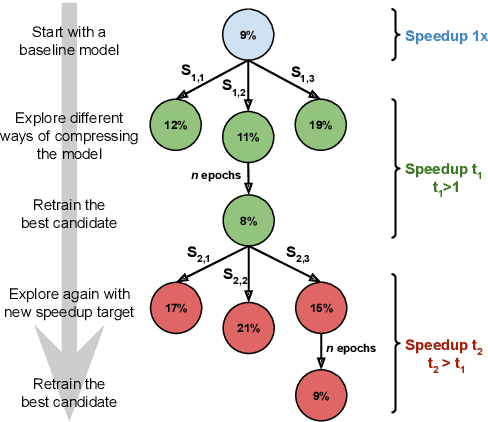
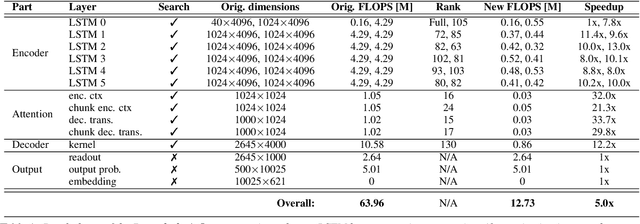
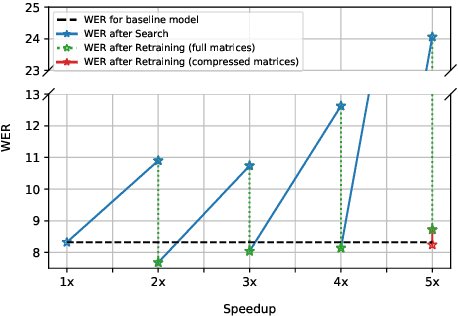
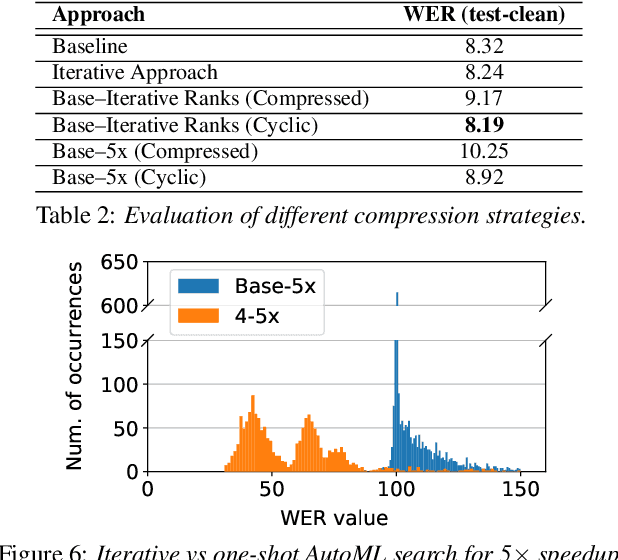
Abstract:Increasing demand for on-device Automatic Speech Recognition (ASR) systems has resulted in renewed interests in developing automatic model compression techniques. Past research have shown that AutoML-based Low Rank Factorization (LRF) technique, when applied to an end-to-end Encoder-Attention-Decoder style ASR model, can achieve a speedup of up to 3.7x, outperforming laborious manual rank-selection approaches. However, we show that current AutoML-based search techniques only work up to a certain compression level, beyond which they fail to produce compressed models with acceptable word error rates (WER). In this work, we propose an iterative AutoML-based LRF approach that achieves over 5x compression without degrading the WER, thereby advancing the state-of-the-art in ASR compression.
Attention based on-device streaming speech recognition with large speech corpus
Jan 02, 2020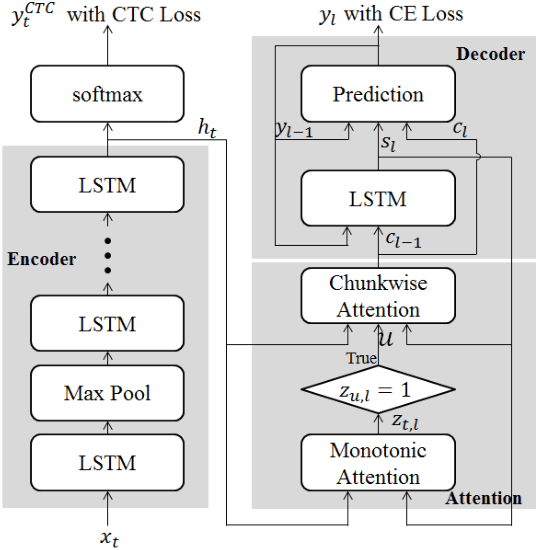

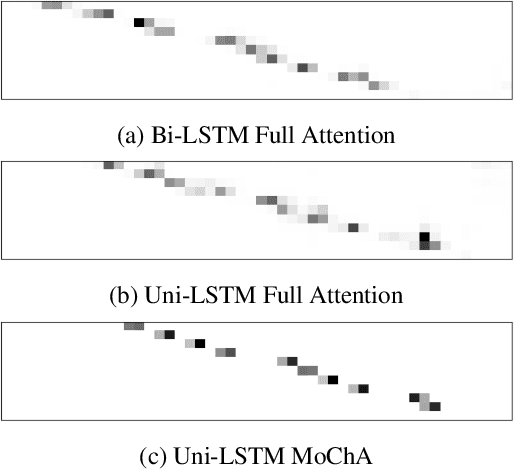
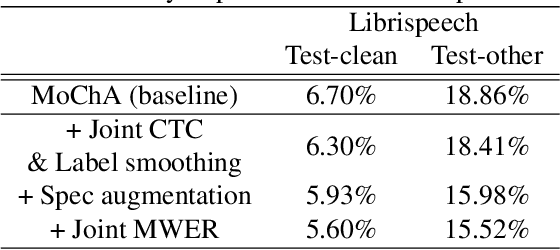
Abstract:In this paper, we present a new on-device automatic speech recognition (ASR) system based on monotonic chunk-wise attention (MoChA) models trained with large (> 10K hours) corpus. We attained around 90% of a word recognition rate for general domain mainly by using joint training of connectionist temporal classifier (CTC) and cross entropy (CE) losses, minimum word error rate (MWER) training, layer-wise pre-training and data augmentation methods. In addition, we compressed our models by more than 3.4 times smaller using an iterative hyper low-rank approximation (LRA) method while minimizing the degradation in recognition accuracy. The memory footprint was further reduced with 8-bit quantization to bring down the final model size to lower than 39 MB. For on-demand adaptation, we fused the MoChA models with statistical n-gram models, and we could achieve a relatively 36% improvement on average in word error rate (WER) for target domains including the general domain.
 Add to Chrome
Add to Chrome Add to Firefox
Add to Firefox Add to Edge
Add to Edge